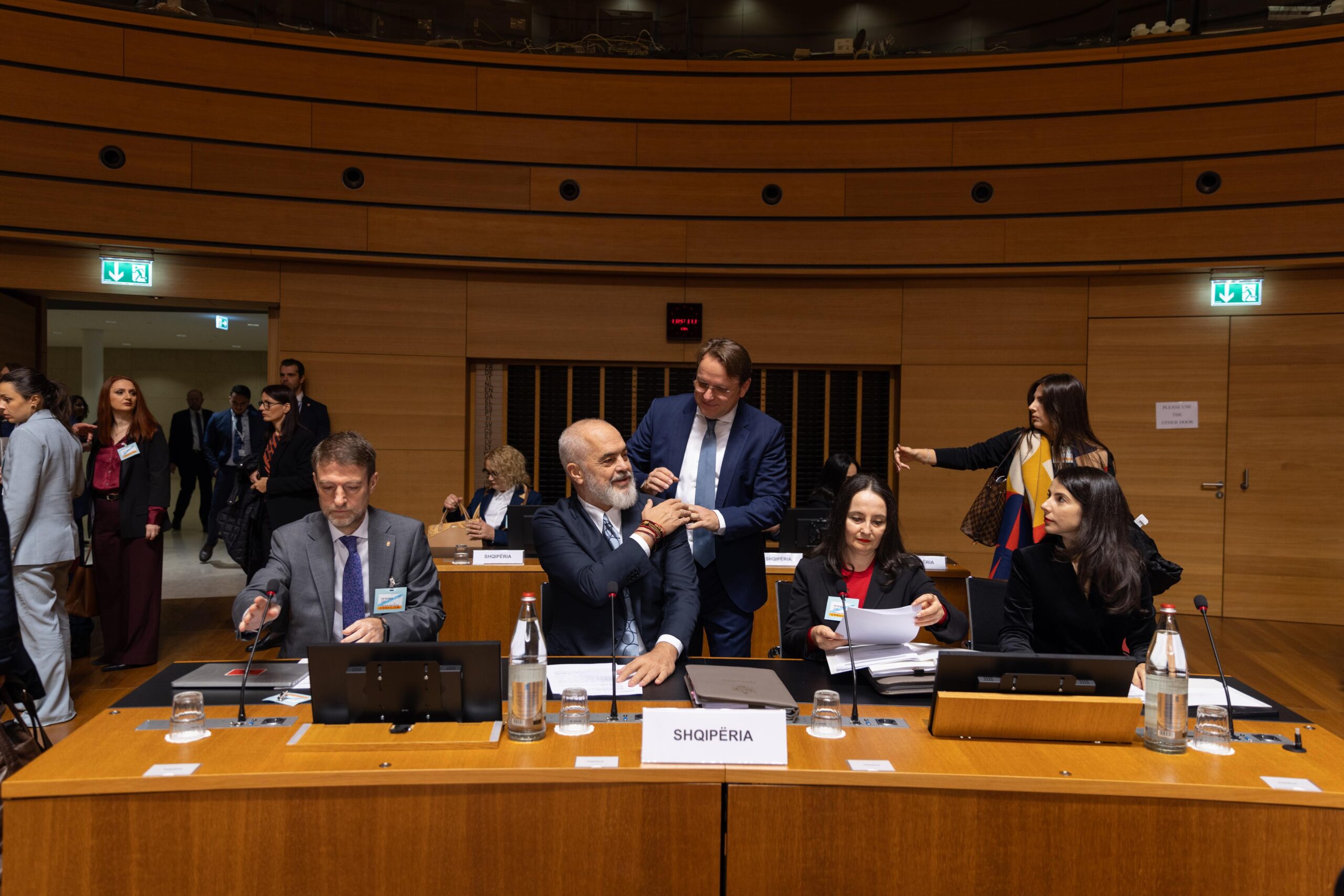Albania and the European Union open negotiations on first chapter cluster in Luxembourg

Photo: Edi Rama and Olivér Várhelyi
Albania has reached another historic milestone in its European Integration process by opening negotiations with the European Union for the first chapter cluster today.
Why is this important: This marks a crucial step in Albania’s path toward EU membership, highlighting the country’s commitment to fulfilling the necessary reforms and meeting European standards. The opening of the first cluster, covering fundamental areas such as rule of law, public administration, and economic policies, demonstrates Albania’s dedication to aligning with EU policies and progressing through the integration process.
Context: Prime Minister Edi Rama is in Luxembourg, accompanied by Minister for Europe and Foreign Affairs Igli Hasani, Chief Negotiator Majlinda Dhuka, Minister for Public Administration and Anti-Corruption Adea Pirdeni, and a delegation of negotiators responsible for the various chapters within this first cluster.
The Second Intergovernmental Conference between Albania and the EU will serve as the official platform to open negotiations on this first chapter cluster. Following the 2020 revision of the EU’s accession methodology, negotiations are divided into six thematic clusters: Fundamentals; Internal Market; Competitiveness and Inclusive Growth; Green Agenda and Sustainable Connectivity; Resources, Agriculture and Cohesion; and External Relations. Albania’s focus today is on the Fundamentals cluster, which includes crucial chapters on the judiciary, public procurement, financial control, and statistics.
What was said: Prime Minister Rama emphasized the significance of this step, noting that the country is now engaging in the most challenging aspects of the negotiation process. Five chapters and three key criteria must be fulfilled to continue advancing in Albania’s EU integration journey. Rama acknowledged that Albania still faces significant challenges on its path to EU membership, but he expressed confidence that the country will meet the necessary criteria. He underlined that the European Union remains Albania’s only strategic goal, with the hope of full membership by 2030. He credited the geopolitical climate, particularly the war in Ukraine, for accelerating the integration process by highlighting the strategic importance of the Western Balkans.
Péter Szijjártó, Hungary’s Foreign Minister, reaffirmed Hungary’s commitment to accelerating the Western Balkans’ integration into the EU. He praised Albania for its progress and expressed hope that the country would soon join the Union, highlighting the region’s importance for maintaining peace and stability in Europe. Hungary has been a strong supporter of Albania’s accession process. ,
Background on accession process: Accession negotiations are central to a country’s journey toward EU membership. They involve aligning national laws with the EU’s acquis and implementing the necessary legal, political, economic, and administrative reforms. Albania, like other candidate countries, is not negotiating the content of the EU’s acquis but is working on how it will transpose and enforce these policies within its borders.
Next steps: The meeting, co-chaired by Prime Minister Edi Rama and Hungarian Foreign Minister Péter Szijjártó, will focus on the opening of the first cluster, including chapters on the functioning of democratic institutions, judiciary reforms, and public procurement. Following the meeting, Rama and Szijjártó are expected to hold a press conference to discuss the outcomes and next steps in the negotiation process.


